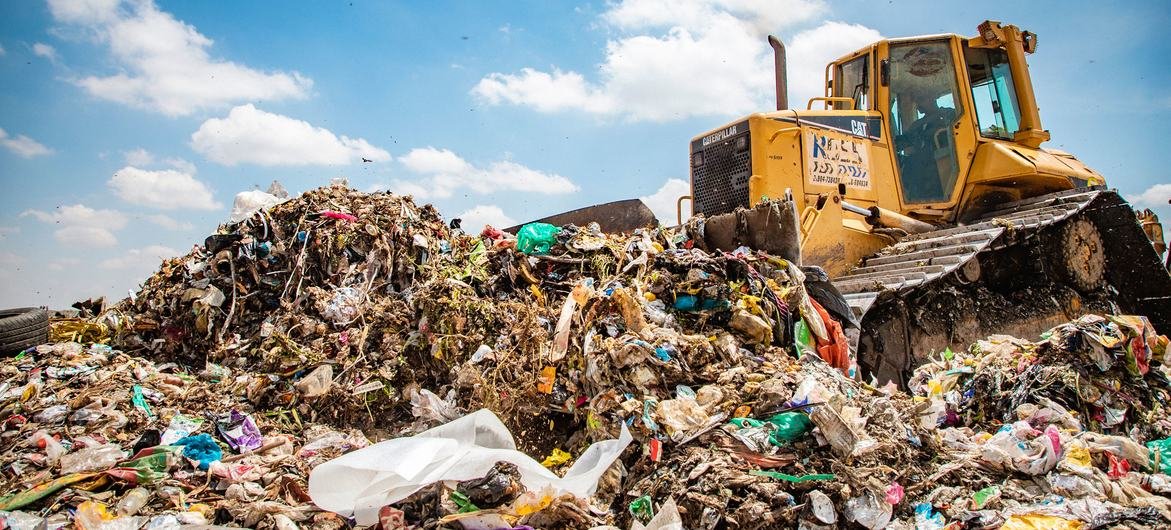New York, 11 March 2024 (TDI): In a recent development, the UN independent expert on human rights and the environment on Wednesday, called for a quick and high-priority shift in how businesses and the global economy work to ward off irreparable damage to Earth’s life support system and secure human rights.
A report carried out by Special Rapporteur David Boyd to the Human Rights Council highlights the impact of businesses on the environment. He underlines that current business practices, especially those of large businesses, present a grave threat to the planet’s ecological solidity.
According to Special Rapporteur David Boyd, there are “colossal impacts” on natural resources, that are being consumed six times faster than the planet can manage.
He further reports that “Led by the ultrarich, with their private jets, yachts, massive mansions, space travel, and hyper consumptive lifestyles, humanity is exceeding Earth’s carrying capacity.”
Also, businesses are the main contributors to air pollution. This has caused over 4 million premature deaths every year. The fine particles that lead to pollution in the air come from electricity generation such as burning fossil fuels and biomass, transportation, and industrial processes.
Around 22 percent of the premature deaths caused by air pollution are connected to international trade. For instance, air pollution that stems from goods produced in the United States and Western Europe is connected with 100,000 premature deaths annually in China.
In addition to this, assessing the impact of businesses on the environment, well-established irresponsible businesses that are largely based in the Global North, “engage in predatory tactics that take advantage of lower environmental standards, limited monitoring, and weak enforcement in the Global South.”
This increases the gross geographical power imbalances and breaches the rights of citizens who experience hurdles in trying to hold transnational corporations liable.
Moreover, state-owned enterprises are the major drivers of climate emergency, leading to a record number of deaths, malnutrition, water insecurity, socioeconomic decline, biodiversity loss, and ecosystem degradation.
These state-owned enterprises include Saudi Aramco, Gazprom and Lukoil (Russia), National Iranian Oil, Coal India, Pemex (Mexico), China National Petroleum Corporation, Shenhua Group, and China National Coal Group.
In addition to this, in 2017, 100 energy and cement companies were responsible for 71 percent of the total industrial GHG emissions between 1988 and 2015.
Also Read: Maldives urges swift UNSC action on Climate Security
Boyd further goes on to report that people are severely harming Earth’s life support system, with deep-rooted outcomes for human rights. He goes on to add that States have failed to monitor, regulate, and punish businesses for their impact on climate, environment, and human rights.
The situation is aggravated as states “encourage, enable and subsidize destructive business activities.” Some of the other ways of the impact of businesses on the environment include “greenwashing” which reduces the impact of scientific fact, encourages corruption, and uses lawsuits to stifle debates and intimidate critics.
According to David Boyd, it is the responsibility of businesses to regard human rights and the right to a sustainable environment. He further asserts the duty of states to safeguard human rights from the harm that businesses may have on them, and their right to hold businesses liable.
Ecuador accepts the fact that the current regulations to reduce the negative impact of businesses on the environment, are inadequate and the implementation of these regulations is incompatible.
Moreover, Ecuador also sheds light on “greenwashing” and maintains that every state should apply laws, policies, and educational programs to foster the right understanding of environmental and human rights issues.
Directions to attain Ecological Sustainability
The Special Rapporteur also emphasized the several directions to attain ecological sustainability. One of these is to move away from measuring the Gross Domestic Product (GDP). This method stresses more on the monetary value of every economic activity as the only measure of progress.
Boyd further reports that “Paradoxically, businesses have a critical role in supporting society’s quest for a just and sustainable future. Therefore, we need to promote good practices and require all businesses to shift to a paradigm that puts people and the planet before profit.”
There is sufficient evidence by scientists to suggest that humanity has gone beyond the boundaries of a safe and sustainable planet. There is a pressing need for businesses and economic paradigms to reevaluate how they have pushed “civilization to the brink of disaster.”
Constructional and major changes are needed to attain a just and sustainable future. This includes the establishment of new business models, and climate and environmental laws, that include planetary limits, fiscal policies that lower inequalities, and all encompassing societal goals that substitute GDP and endless growth.



